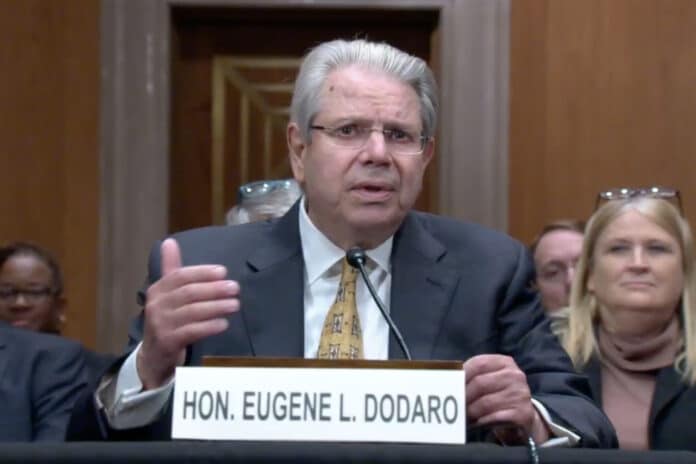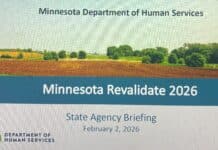
(The Center Square) — U.S. taxpayers lose up to $521 billion a year to fraud across the federal government, according to a first-of-its-kind estimate.
The U.S. Government Accountability Office estimated annual fraud costs taxpayers between $233 billion and $521 billion annually, according to a new report published Tuesday. The fraud estimate’s range represents 3% to 7% of average federal obligations. The estimate was based on data from fiscal years 2018 through 2022. The government obligated almost $40 trillion from fiscal years 2018 through 2022, but had no reliable estimates of fraud losses.
David Walker, former comptroller general of the United States and a member of the advisory board of Main Street Economics, said the estimate is only part of a larger spending issue.
“The federal government’s estimated annual financial losses to fraud of between $233 billion and $521 billion is just the tip of the iceberg,” Walker told The Center Square. “When you add waste, abuse, and mismanagement, the numbers are much bigger.”
GAO Director of Forensic Audits and Investigative Service Rebecca Shea put the fraud estimate in context. She said that most federal spending isn’t fraudulent and that the amount of fraud varies greatly by agency. However, those dollars add up.
“Collectively, the taxpayer is losing a significant amount to fraud every year annually,” she said. “And for a little bit of perspective on this relative to agency funding — the top of our range is greater than the budget for all but the top five agencies. And the bottom of our range, it’s larger than the ninth largest federal agency. So, the context for that, what we’re seeing with this estimate, is that fraud may be the sixth largest agency that we are funding annually, and that’s a lot of money that could be going to better use.”
There are more ways to put the fraud estimates into context. At the high end of the estimate, $521 billion is enough money for the U.S. Air Force to buy 751 nuclear-capable B-21 Raider stealth bombers at $692 million per plane. The Air Force plans to buy at least 100 such planes. That’s also enough money to run the Supplemental Nutrition Assistance Program, formerly known as food stamps, for about 4.7 years at 2023 fiscal year spending levels.
Jared Smith, chief statistician and director of the Center for Statistics and Data Analysis, Applied Research and Methods at GAO, said the estimate wasn’t perfect.
“So it’s not that we’re certain the fraud falls in that range, but we have confidence that this is a number that reflects the severity of the problem,” he said.
The GAO used a probabilistic method to estimate a range of outcomes under different assumptions and scenarios where there was uncertainty. The Office of Management and Budget was skeptical of the GAO estimate.
“OMB raised concerns about our estimate and how it would be interpreted,” according to the report. “OMB also questioned the plausibility of our estimate.”









